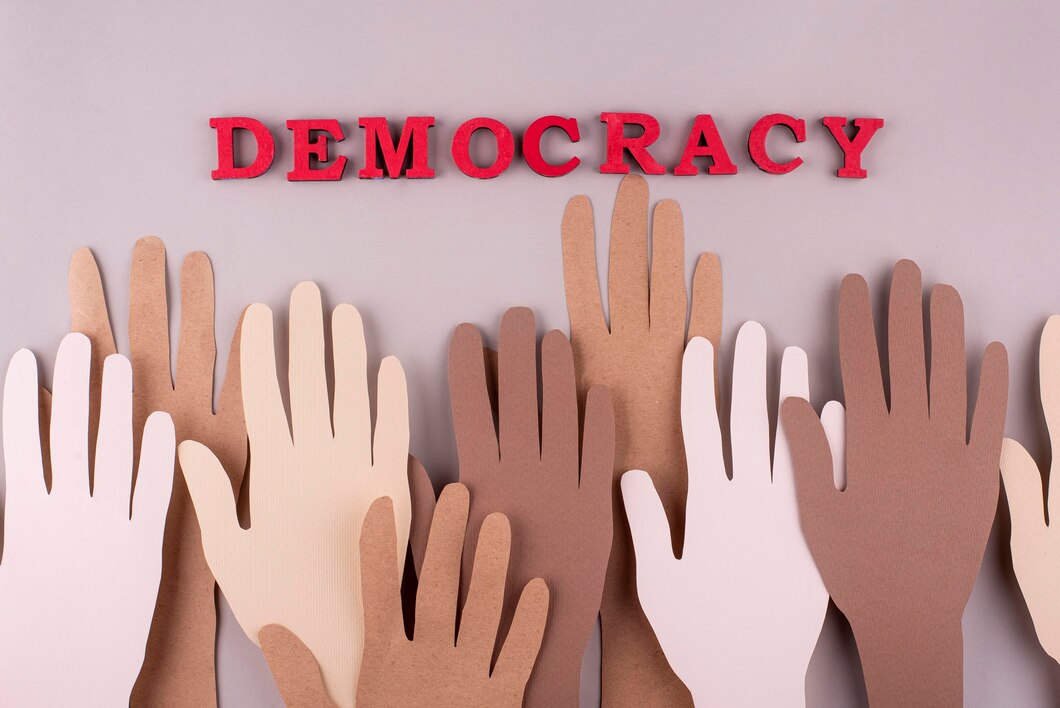Understanding The Factors Shaping The Political Landscapes Of Democracies
by Mony Shah News 10 February 2024

Despite being the bedrock of modern governance, democracy is a rather complex subject. For starters, it centers on an intricate interplay of institutions, ideas, and the dynamic forces that mold its very essence.
In this article, we take a comprehensive look at the various factors that influence the political landscape of a democratic country. From the microscopic analysis of media narratives to the macroscopic view of economic trends, each section showcases that democracy is a living entity shaped by the collective will and aspirations of its citizens.
Read on to discover the delicate balance that defines the political landscape of democracies.
Demographics and political representation
The statistical data about a population, also known as demographics, plays a crucial role in defining political representation within a democratic framework. The ethnic, gender, and age composition of a nation will influence the type of leaders within that landscape. As a result, demographics and political representation influence the very heart of democratic decision-making.
While the older generation may advocate for more conservative approaches, the younger populations might champion progressive policies. Similarly, ethnicity and gender can impact policy priorities, where diverse representation leads to a more inclusive landscape. For instance, the unique perspectives of women on issues such as domestic violence cannot be ignored.
Political movements and activism
Political movements, whether organized or spontaneous, showcase collective will. Often, these political movements start as a response to perceived injustices, a desire for change, or unmet needs. From advocating for equality to campaigning for sustainability, these movements influence political narratives, and they compel leaders within a democratic nation to address the ever-evolving needs of their people.
On the other hand, grassroots activism adds a decentralized dimension to political influence. It is a critical tool that empowers citizens to be leaders of change by directly impacting policy. The power of grassroots movements is in their ability to vocalize concerns while mobilizing communities, which puts pressure on political decision-makers.
You can join organizations that propose a more united front, such as No Labels. This rapidly growing citizen-led movement seeks to ensure political leaders listen more to the majority of Americans rather than to extremists on the far left or right. The goal is to ensure the government works for the people by fighting for bipartisan, common-sense solutions to our nation’s biggest problems and reforms to our political system.
Literacy rate and political awareness
There is a direct relationship between political awareness and literacy. A literate population can critically evaluate political agendas and actively engage in the democratic process. Literacy empowers citizens to make informed decisions that go beyond the voting booth.
Equally, literacy forms the basis for civic participation. The engagement of citizens is paramount in democracies, so literacy becomes the gateway to active involvement in several aspects, including political discussions and community affairs. An informed person will always seek accountability and transparency from their leaders.

Economic development and political stability
Economic prosperity serves as a compass that guides the trajectory of a nation’s political landscape. Nations with robust economies will experience greater political stability because the basic needs of citizens are met. Economic downturns, on the other hand, can sow seeds of discontent, which fuel social unrest and challenge the nation’s democratic stability.
Economic development, which is characterized by job creation and GDP growth, becomes a crucial determinant in shaping political choices. For instance, governments that successfully handle economic challenges receive more public support. Those who mismanage resources erode trust and breed political instability.
Infrastructure development and governance
Effective governance relies on well-established infrastructure. Effective transportation systems help seamlessly move products and services, which fosters economic activity and connectivity. Take the example of robust communication infrastructure, such as internet accessibility, that empowers citizens and facilitates transparent governance.
Infrastructure is also linked to the democratic ideal of equal representation. Nations that boost well-developed infrastructure have stable governments that support all their citizens. This showcases inclusivity, which strengthens the democratic fabric and prevents the concentration of power in urban centers.
Media influence and public opinion
Media can be rather influential, especially in the political scene. It acts as a sculptor and mirror of public opinion by reflecting diverse perspectives and societal sentiments. The media wields the power to actively shape public opinion through their selection of news stories.
Politicians leverage the media’s role as a bridge between them and the public to manage their public image. Media outlets can also shape narratives that influence politics when driven by commercial interests and competition. After all, the prominence given to specific stories and the framing of issues can contribute to the shaping of public sentiment.
The bottom line
Demographics, literacy rates, political movements, economic development, infrastructure, and media influence actively shape political landscapes within democracies. Each element significantly contributes to the effectiveness of democracy by encompassing the different voices within society. Recognizing this intricate connection is vital to nurturing a democratic environment that can thrive despite the many challenges.
Read Also:






































































































